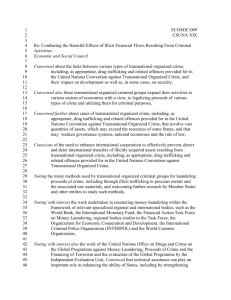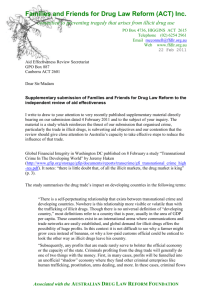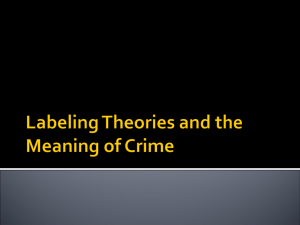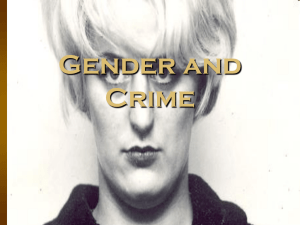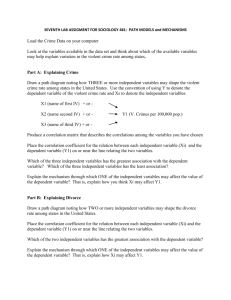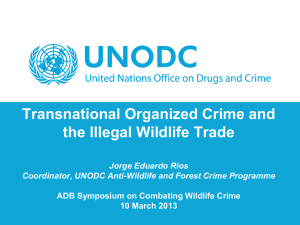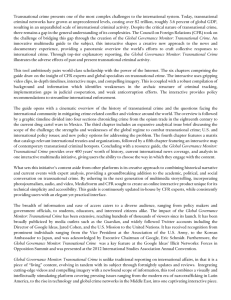Text of the intervention on behalf of Global Initiative Against
advertisement
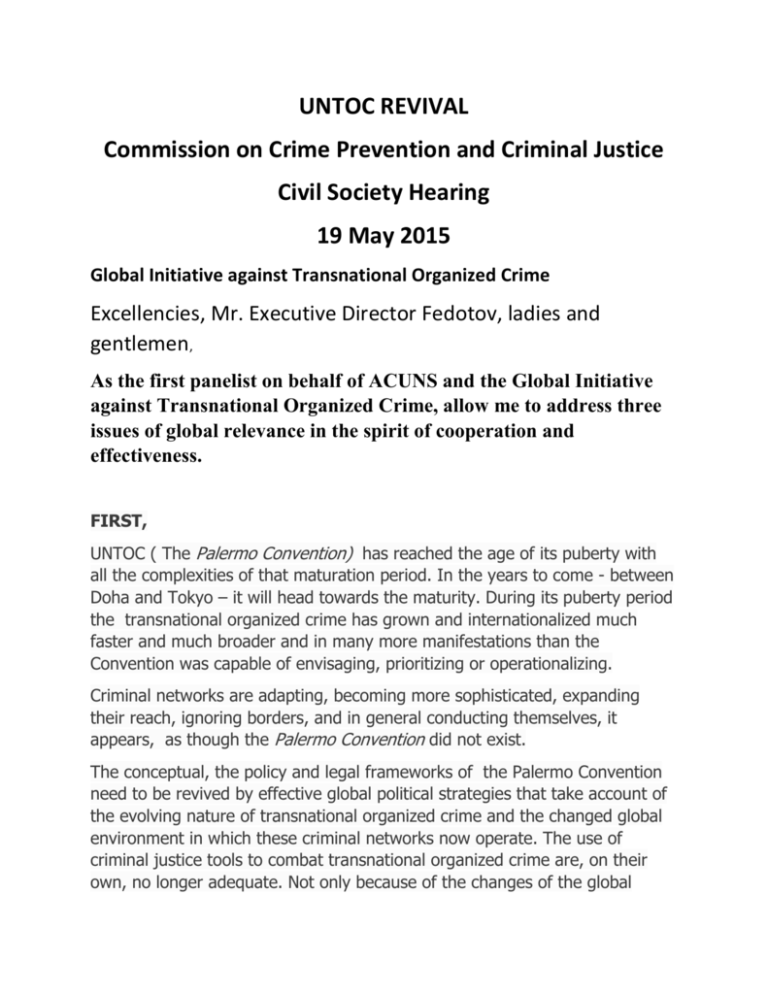
UNTOC REVIVAL Commission on Crime Prevention and Criminal Justice Civil Society Hearing 19 May 2015 Global Initiative against Transnational Organized Crime Excellencies, Mr. Executive Director Fedotov, ladies and gentlemen, As the first panelist on behalf of ACUNS and the Global Initiative against Transnational Organized Crime, allow me to address three issues of global relevance in the spirit of cooperation and effectiveness. FIRST, UNTOC ( The Palermo Convention) has reached the age of its puberty with all the complexities of that maturation period. In the years to come - between Doha and Tokyo – it will head towards the maturity. During its puberty period the transnational organized crime has grown and internationalized much faster and much broader and in many more manifestations than the Convention was capable of envisaging, prioritizing or operationalizing. Criminal networks are adapting, becoming more sophisticated, expanding their reach, ignoring borders, and in general conducting themselves, it appears, as though the Palermo Convention did not exist. The conceptual, the policy and legal frameworks of the Palermo Convention need to be revived by effective global political strategies that take account of the evolving nature of transnational organized crime and the changed global environment in which these criminal networks now operate. The use of criminal justice tools to combat transnational organized crime are, on their own, no longer adequate. Not only because of the changes of the global crime itself but even more so because of the changes in the geo-political environments and configurations. Today’s geopolitical configuration goes above and beyond the states and governments; but so does the criminal network configuration including illicit deeds and deal by governments, private sector, TOC and terrorist groups, all of which are much more present than in Palermo of 2000. Indeed, in certain configurations there is no state- there is no government. And these are not isolated spots but I am afraid to say so, the whole belts with an expanding trend. A more strategic approach, involving additional tools and role players, and based on greater synergy with other strategies that address international security challenges, needs to be put in place and effected. SECOND, In addition to the above general consideration, allow me to highlight just few issues of particular importance for furthering global conversation: Legalization of the proceeds of crime and their processing through international trade and financial institutions in the framework of organized transnational money laundering and corruption; Transnational organized crime, illicit economies, illicit trade and sustainable development; Today’s human trafficking and smuggling of migrants have blurred the Protocols’ distinctions: it is now indeed a migrant trafficking and human smuggling Transnational organized crime, corruption and terrorism; Cybercrime and organized crime; Environmental transnational crime, wildlife crime, criminal networks and licit trade THIRD, UNTOC or for that matter UNCAC and Drug Conventions cannot further remain almost divorced from each other as the two commissions appear to be despite the efforts to bring them closer to each other. The forthcoming UNGASS on Drugs has much relevance for UNTOC and UNCAC but such , if not a symbiotic, then at least complementary and cooperative relationship is certainly not in the forefront and one may wonder whether it is even in the backyard. Similarly, there appears not to be much strategic cooperation between diverse international instruments and bodies thereof in charge of the monitoring of their implementation such as the newly promulgated ATT; the WHO’s Tobacco Control Convention; the ILOs conventions, e.g. Forced Labour, Child Labour and Domestic Workers Conventions; Human Rights Council and resolutions; etc. There must be an effective monitoring, evaluation and review mechanism which will provide for a multi-disciplinary and pluralistic appreciations of the anti-crime and anti-drugs instruments from the results-based and impact perspective. The review and evaluation must be participatory and inclusive with a clear and positive contribution by the civil society. A lesson from the Human Rights Council UPRs where the contribution of the civil society is mandatory should be taken seriously. The SDGs platform and in particular Goal 16 but not only, provide an excellent integrative framework in terms of the transparent and inclusive international conversation on the three above mentioned highlights, including the revival of UNTOC. Civil Society stands ready to fully engage in such an international conversation on the international strategic approaches to the ever-changing world, including the criminal world. We must stop being self-referential and inward looking and we must become more open and outward looking.



